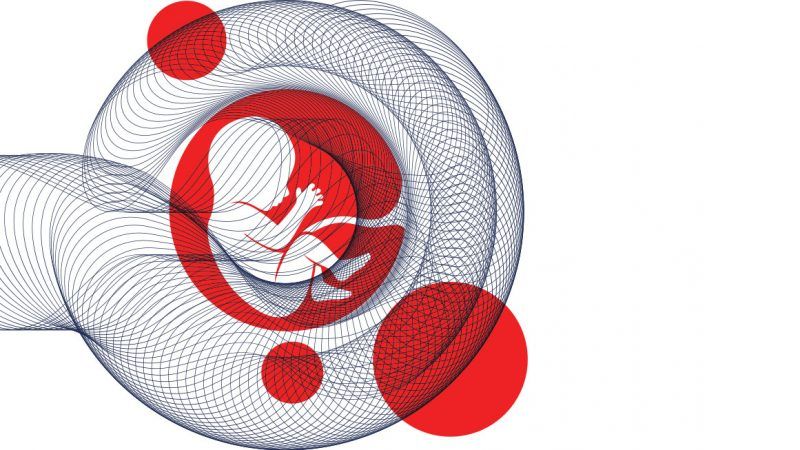Now That I'm Younger, I'm Thinking About Becoming a Father

Before we got married way back in 2000, my wife and I decided we didn't want children. As a transhumanist, I would sometimes quip, "We'll have kids when we're younger." My nontranshumanist wife usually responded to this witticism with slightly exasperated eye rolling.
Now it's the 2050s and I'm about to celebrate my 100th birthday. Forty-some years ago, Harvard geneticist George Church predicted that researchers would be able to reverse aging in humans sometime in the early 2020s. That was a bit optimistic, but he wasn't too far off. As a result, millions of us survived into the modern era, in which rejuvenation researchers have achieved longevity "escape velocity": Life expectancy now increases by more than one year for every additional year of anti-aging research that's conducted.
Due to advances in anti-senescence and age reversal treatments, I'm now physically much younger—about age 30—and have the energy and focus to devote to rearing a child.
While my also-younger wife is still disinclined toward motherhood, she has recently agreed that it would be OK if I were to become a father. So I'm exploring the idea of becoming a monoparent. Happily, mid-21st century science makes this possible.
Reproductive technologies have evolved in much the way Stanford University bioethicist Henry Greely outlined back in 2016. In his book The End of Sex and the Future of Human Reproduction, Greely foresaw that most people would use gametes derived from their skin cells to create scores of in vitro-fertilized embryos. He accurately predicted that by the 2050s and '60s, half of all American babies would be born through "easy pre-implantation genetic diagnosis," or Easy PGD.
Why are more people choosing Easy PGD in 2050? Because parents can choose among embryos based on a preferred combination of genetic traits. Among other things, you can avoid having children afflicted with debilitating genetic diseases. And because the gametes can be derived from one or two people's skin cells, you don't even need a conventional partner! That allows monoparental reproduction but also makes it feasible for same-sex couples to have offspring genetically related to both parents.
Easy PGD is distinct from cloning, in which unchanged cellular nuclei from a single parent are installed in enucleated eggs to produce embryos. Of course, we also have cloning now. The genomes of the parent and the cloned child essentially make them age-separated identical twins.
Call me old-fashioned, but I'm more comfortable with Easy PGD. Gametes created from my skin cells would be much like those created via the natural process of meiosis: Bits of my chromosomes undergo recombination such that when a skin cell is transformed into gametes, the set of chromosomes in each daughter cell contains a mixture of my genetic traits but not necessarily the same mixture as in the other daughter cells. In other words, unlike clones, monoparental children are not genetically identical to their mother or father.
Once my skin-cell gametes are combined to produce embryos, their whole genomes will be sequenced to see exactly what combination of genetic traits they carry. Each one will then be analyzed to generate polygenic risk scores. That process assesses multiple genetic variants that together are used to predict the embryo's chance of developing a disease, being taller than average, or doing well in school. Reproduction technicians can even feed the embryos' genome sequences into a phenotype reader that will generate a picture of how each one would likely look at age 18.
It's at this stage that my reproductionists and I would discuss how to use gene-editing to correct undesirable mutations and enhance the most promising embryos. I already know I carry gene variants that predispose me to conditions such as hypertrophic cardiomyopathy, age-related macular degeneration, and substance abuse. Although modern medical treatments keep these problems under control, it would be better if my future daughter, through gene tweaks, could avoid them altogether.
Although much progress has been made, ectogenesis—growing embryos in artificial wombs—is still not possible. Fortunately, gestational surrogacy is widely practiced and well-compensated. The old legal confusions have been resolved, and it is now universally agreed that the genetic parents are legally responsible for the rearing of children born to surrogates.
I have not completely made up my mind to pursue monoparenthood, but there's no particular hurry. Barring accidents, I'm likely to remain physically young and live many more decades yet.
